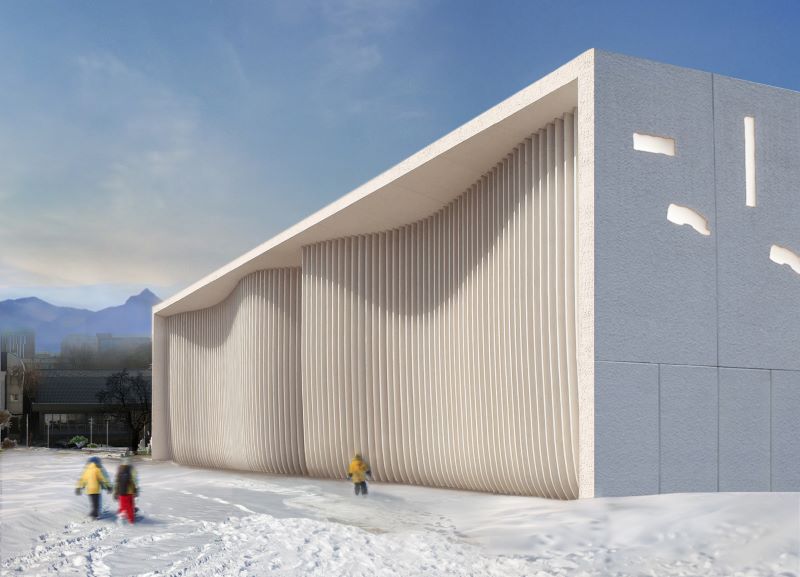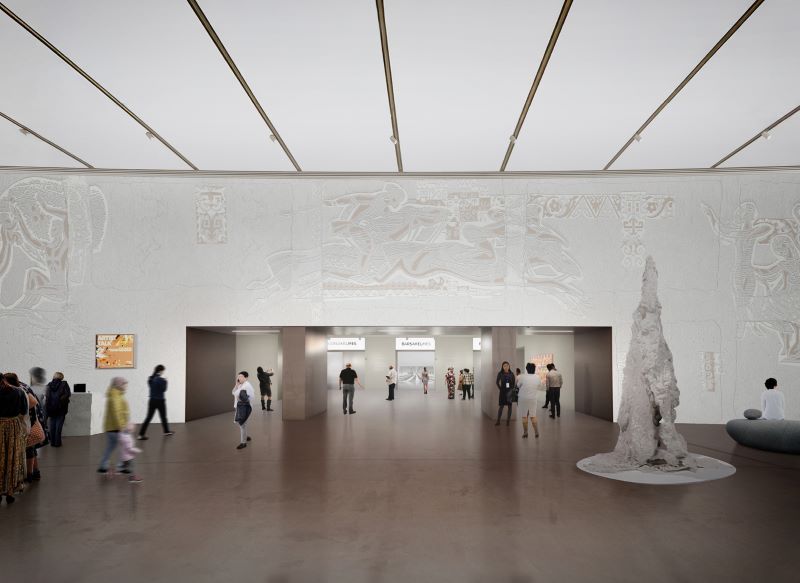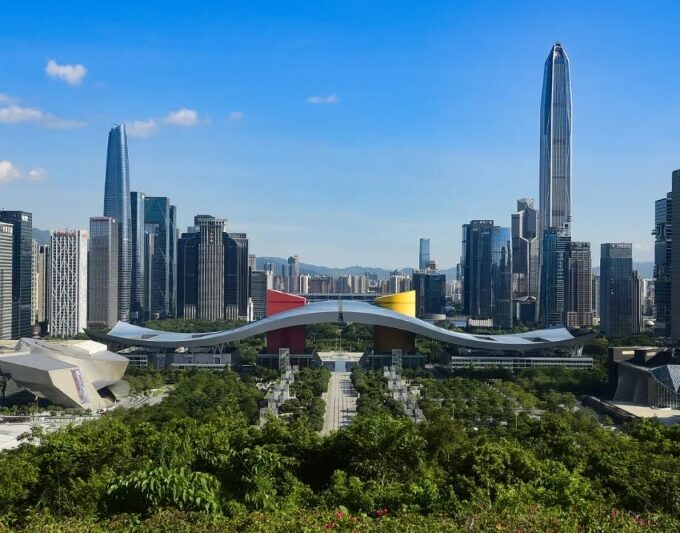British architect Asif Khan has unveiled his design for transforming a Soviet-era cinema in Almaty, Kazakhstan, into the Tselinny Center of Contemporary Culture. This multi-functional venue aims to support the growth of creative talents in Kazakhstan and Central Asia. Launched in 2018, the project is set to open in April, featuring spaces for art exhibitions, performances, film screenings, workshops and other activities. Upon completion, the Tselinny Center will become Kazakhstan’s first independent cultural institution.
Building’s Historical & Renovation Basics
Constructed in 1964, the building was the largest Soviet-era cinema in Central Asia, embodying typical modernist architectural principles of the time with a simple, unadorned design. During the renovation, Asif Khan retained most of the cinema’s original structure, including its concrete frame and overall volume, while integrating modern facilities and upgrades that meet contemporary standards.
The name “Tselinny” derives from the Russian word “tselina,” meaning “undeveloped but fertile land,” symbolizing the building’s potential as a hub for cultural innovation. While staying true to its modernist roots, Asif Khan’s design includes key updates. The cinema’s 18-meter-high auditorium has undergone structural reinforcement, and the lobby and wings have been reconstructed to meet modern seismic standards and enhance connectivity between the building and its surrounding landscape.
Architectural Design Features
Externally, the building will adopt striking fiber-reinforced concrete panels for its facade. Some of these panels have wavy vertical fins, while others are decorated with abstract patterns resembling rock carvings. The design draws inspiration from an original scratch painting by artist Evgeny Sidorkin, which depicts traditional Kazakh life scenes. According to Asif Khan, this new facade creates a sharp contrast with the original cinema’s stark modernist architectural style, offering visitors an experience of “soft white layers.”
The revamped Tselinny Center will add new spaces such as galleries, workshop areas, a library, office spaces and a bookstore, along with a rooftop terrace and a restaurant. The rooftop restaurant is intended to pay tribute to Almaty’s historic “Broadway” district—a place that gathers parks, squares and landmark buildings from the Soviet golden age. Asif Khan explained that the project’s goal is not only to restore a Soviet-era relic but also to create a “Tselinny Center that never existed before,” providing a space for a new generation of artists to explore transformative ideas.

Opening & Similar Projects
The center’s opening events will include an exhibition curated by historian Markus Lähteenmäki, documenting the cinema’s transformation. Additionally, a diverse range of works by artists from Kazakhstan and Central Asia will be on display. Founder Kairat Boranbayev envisions the Tselinny Center as a catalyst for cultural development in the region, offering a platform for interaction, creativity and collaboration, while attracting both local and international talents.
In related latest news, Zaha Hadid Architects, in collaboration with Serbia’s Bureau Cube Partners, has won the design competition for the renovation of Belgrade’s historic Milan Vapa Paper Mill. The mill will be turned into a modern cultural center dedicated to honoring the legacy of Nikola Tesla.
Furthermore, Kéré Architecture is constructing a cultural center in Togo to celebrate the cultural heritage of the Ewé people, with an opening planned for 2026. Finally, Detroit’s cultural district, led by design teams Akoaki and Agence Ter, has launched a 15-year renovation plan aimed at integrating its twelve cultural institutions into a vibrant and easily accessible space.












